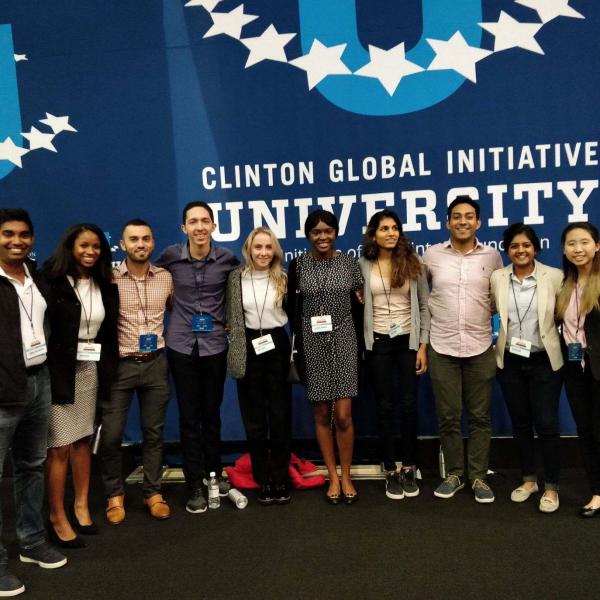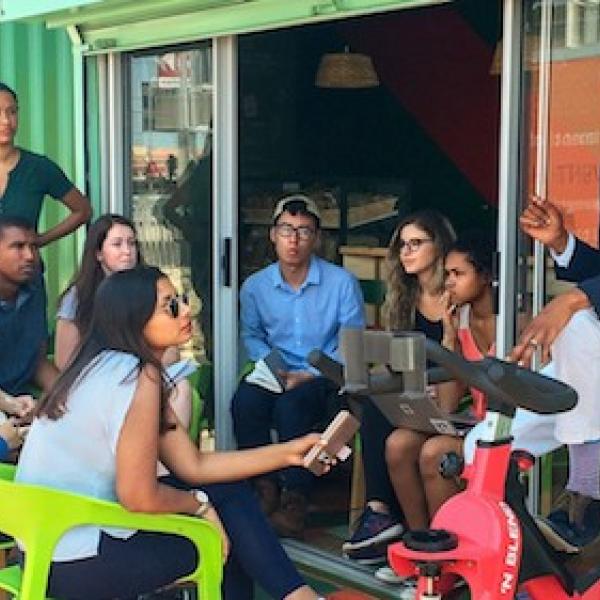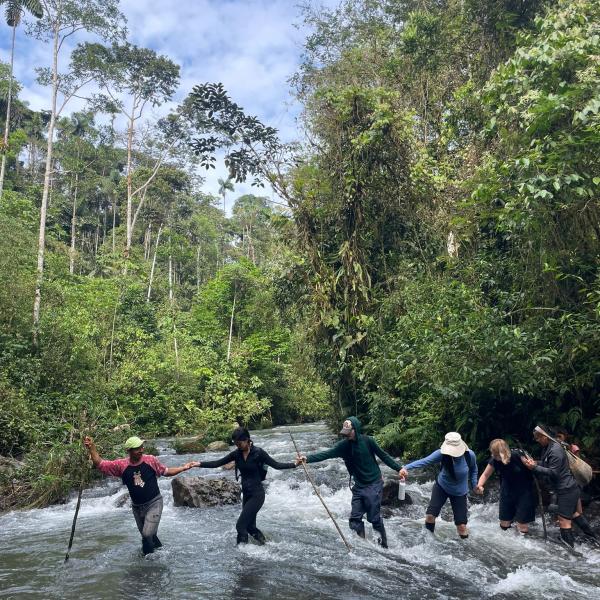Overview
Students on Marine Ecology track should have Open Water certification and DAN insurance prior to participating on program
Not all programs open in the second round of applications
Learn more about the application process and deadlines for each round of applications.
Located on the island of San Cristobal, the Universidad San Francisco de Quito (USFQ) Galápagos campus offers international students the opportunity to study in one of the most pristine natural laboratories in the world.
What is unique about this program?
Universidad San Francisco de Quito (USFQ)-GAIAS is a Cornell Global Hub partner university. Global Hubs are Cornell's collaborative centers of engagement around the world. Hubs will give students exciting opportunities for semester-long and short-term study abroad, field experience, participation in faculty-led research, curricular pathways through majors, internships, and more.
The Galápagos Semester Program offers four Academic Tracks in the biological and social sciences, all taught in English. Students may choose one of the following tracks, subject to minimum enrollment. Note: it is not possible to take courses across multiple tracks:
- Evolution, Ecology, and Conservation (must have taken one biology/ecology course with a B- or higher)
- Marine Ecology (must have taken two biology/ecology courses with a B- or higher)
- Sustainability and Resilience
- One Health (must have taken two biology/ecology courses with a B- or higher)
The program will start in the mainland for the first two modules. Depending on your program track, you will visit the Ecuadorian highlands, the coast, or the cloud forest during the first module. Students on the Ecology, Evolution & Conservation and the Marine Biology tracks will visit USFQ’s Tiputini Biodiversity Station for in the Amazon basin in the mainland modules prior to arriving in the Galapagos to complete the final 3 modules.
What is unique about Galápagos?
The Galápagos is an archipelago of 19 volcanic islands located at the convergence of three ocean currents in the Pacific Ocean. The Galápagos Islands are considered to be one of the most biologically diverse islands in the world and are a popular destination for research in Biology, Ecology, Environmental Studies, and Sustainability.
How do I learn about USFQ and the Galapagos Science Center?
- Learn more about USFQ's undergraduate College's and Majors
- Explore USFQ's YouTube page to learn more about Quito and USFQ
- Review USFQ's COVID-19 page for updates and general information
- Visit the USFQ Galapagos Extension and Galapagos Science Center websites
Things to Consider Before Applying:
- This program requires flexibility and adaptability. You will be studying with the same small group; moving to different campuses, some with very limited opportunities for individual travel or exploration; and living as a guest with local hosts. You must be open to following safety & security advice even if it limits your planned activities, and you must be flexible when schedules must be adapted due to unforeseen circumstances.
- Review the information on the Education Abroad Office’s Get Started page for important considerations on academics and finances, and a guide to the next steps
- Still have questions? Visit the Get Advice page and learn how to connect with an Education Abroad Advisors
- Want to keep up to date with Cornellians Abroad? Follow Education Abroad on social media, @cornelliansabroad
How do I apply?
Applying to study abroad is a two-step process. For more information, visit Apply for Semester and Year on the Education Abroad website.
For Cornell approval and nomination, click on the "Apply" button on this webpage. Applications are reviewed by Education Abroad. See timeline. Students who secure a space will be invited to commit. Once committed, the Education Abroad Office will nominate you to the exchange partner.
Once nominated by Cornell, complete the external application for exchange students provided by the partner. Schools typically admit the students nominated by exchange partners, but you must complete this process for them to review your application and offer you a place. The timeline for nominations varies greatly by program; you will hear from your Education Abroad Advisor or the program itself when it is time to apply externally.






